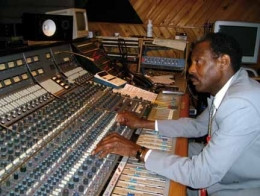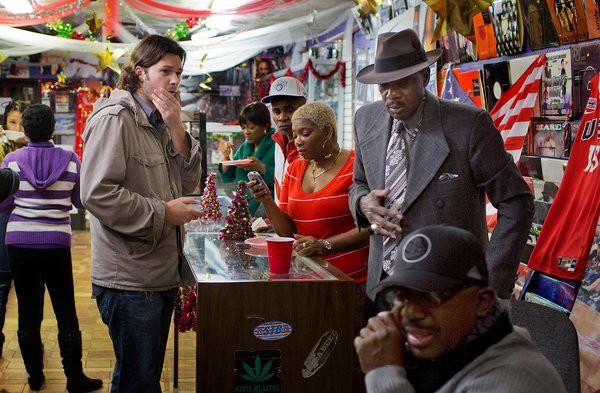Rawlston Charles
Настоящее имя: Rawlston Charles
Об исполнителе:
Charles was born in Tobago, moving to Trinidad when he was 15. Shortly after that, he migrated to the United States, where he got involved in the automobile business, repairing, buying and selling cars. The transition from this lucrative enterprise to the shaky ground of the music arena came gradually and quite by chance. Nowhere in his plans did Charles ever intend to become involved with the recording industry—the closest he had ever come to musical activities had been as a member of the church choir during his teens. Charles had travelled to the US with his copy of Kitchener’s 1967 album. He began to add to his calypso collection, and would take his records with him whenever he went liming or partying on weekends. Eventually he started to DJ at these events and things just took off. It was very hard to get calypso records, but as a DJ Charles would not play any other music. Calypso records also cost more, as they had to be imported into the US.So Charles opened his own record store, on July 4,1972, and the next year he began to travel back to Trinidad to make contact with calypsonians and bandleaders, get their music and take it back to the States. Next he became an executive producer and started Charlie’s Records. The first production on the label was an album entitled Labor Day in Brooklyn with Mano Marcellin—which didn’t even sell 100 copies. This did not stop Charles, who admitted that at the time he knew nothing of the music business, so he set out to get it right by connecting with the right people. By 1975 Charles was putting out music from just about every major calypso and soca act of the day. Then, in 1977, he hit upon what would be the artist and the song that finally earned him the respect of the biggest players in the arena, when he made a judgment call on a piece of music that at first left people saying he was a madman. But when Calypso Rose became the first woman ever to win the Road March title, everyone admitted that Charles was not only a man with vision, but also had a sixth sense when it came to what would make a hit. Charles built and opened his recording studio in 1984. It was used not only by calypso and soca artistes, but also some of the biggest names in the East Coast hip-hop fraternity, such as Dougie Fresh, Slick Rick, and RUN-DMC. The gold records they were awarded were once proudly displayed in the studio’s hallway, but most of them were stolen some years ago and only a couple of them were salvaged. As for the music business today, despite all the changes there is hope, he says. “Fifteen years ago the youth were not interested in soca, but now, with the young artistes coming in, the youth are interested in the music and even exploring what was there before. I am here,” says this veteran, “looking forward to a bright future.”

